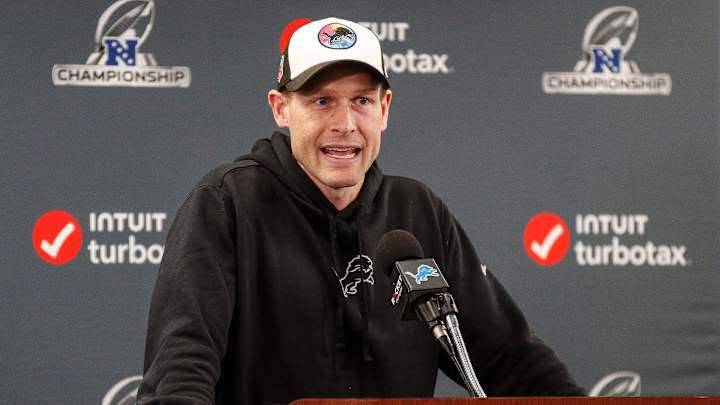Chicago bears head coach Ben Johnson donated his entire $4.2 million bonus and sponsorship deal to charities and homeless relief
In the often hard-edged world of professional football—where success is measured in wins, contracts, and championships—rarely does a coach make headlines for an act of generosity that transcends the game. But in the early spring of 2025, Ben Johnson, the newly minted head coach of the Chicago Bears, did just that.
Upon receiving his $4.2 million bonus and sponsorship earnings from a whirlwind offseason, Johnson made a quiet but profound decision: he donated every cent to a collection of charities focused on housing, food security, mental health services, and homeless relief across Chicago and Detroit. He declined to issue a press release or participate in a photo op. “It’s not about me,” he said in a brief statement to local media. “It’s about doing what’s right.”
The move sent shockwaves through the sports world. Not because NFL coaches aren’t charitable—many are. But the scale of Johnson’s donation, and the personal nature of the causes he selected, reflected something deeper than duty. It reflected character.
Johnson’s path to NFL stardom wasn’t the traditional one. A former quarterback at North Carolina and an engineering student with a head for strategy, Johnson made his name in coaching through raw intellect and relentless preparation. His innovative offensive mind turned the Detroit Lions into a top-5 scoring unit in back-to-back seasons, earning the admiration of players, executives, and fans.
But it wasn’t until January 2025 that Johnson made his biggest leap—accepting the job as head coach of the Bears, a franchise longing for direction. Amid a dramatic rebuild centered around rookie quarterback Caleb Williams, Johnson became the face of hope for one of the NFL’s most storied, yet starved, teams.
What the public didn’t know then was how Johnson viewed his new role not just as a football coach, but as a steward of community. He’d spent the last few years watching the widening gap between wealth and poverty in cities like Detroit and Chicago. During his time with the Lions, he quietly volunteered at shelters and funded vocational training programs. He rarely spoke about it.
“He wasn’t doing it for praise,” said Alondra Smith, director of Hope House Detroit, one of the nonprofits that benefited from his earlier giving. “He’d come in on off days, sit with the teens, talk about discipline, goals—things beyond football. He listened more than he spoke.”
Johnson’s arrival in Chicago coincided with the city facing one of its worst housing crises in decades. The number of unhoused individuals had risen sharply post-pandemic. Tent encampments under viaducts, in parks, and near downtown high-rises had become part of the daily urban landscape.
“He saw it every day coming into Halas Hall,” said a Bears staffer, who requested anonymity. “It hit him hard. You could see it weighing on him.”
After signing a five-year, $65 million deal, Johnson could have indulged in the perks that often accompany NFL head coaching: luxury real estate, cars, security details, and private travel. Instead, he sat down with his financial advisor, reviewed his bonus structure and sponsorship income, and redirected it all to a select group of organizations fighting homelessness in Illinois and Michigan.

